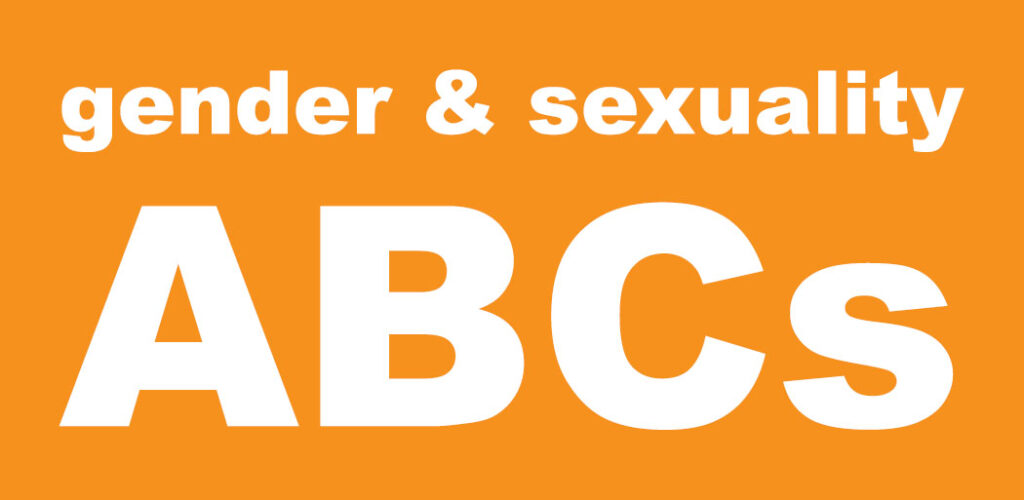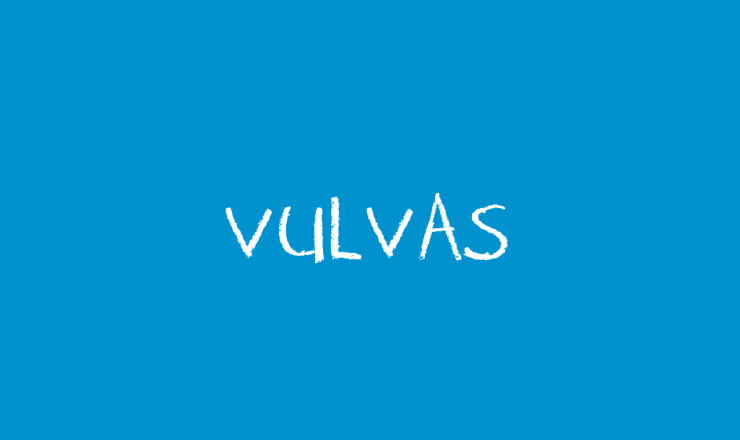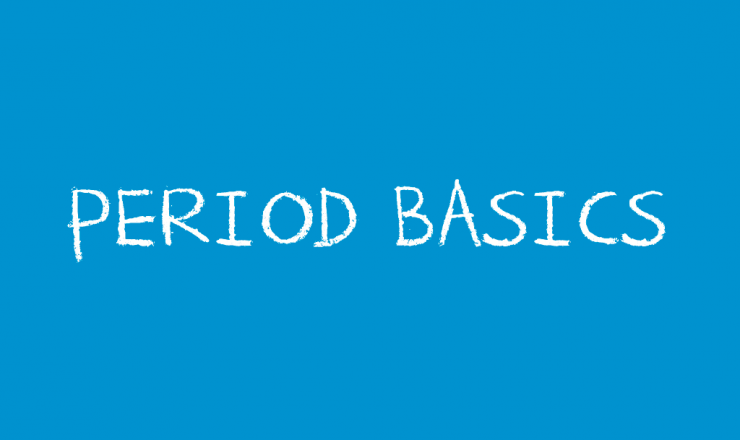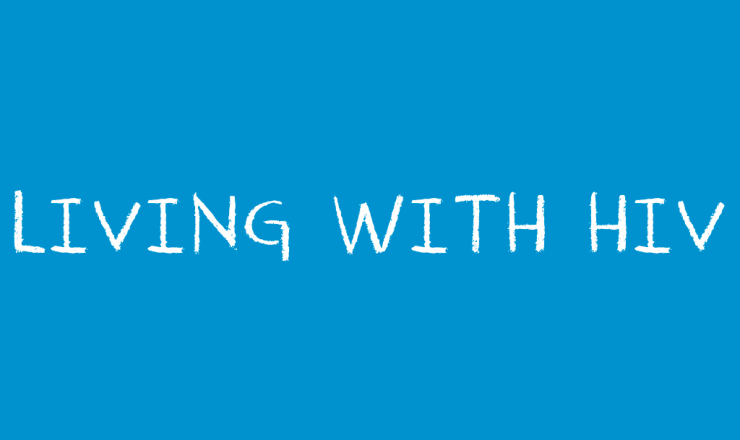Gender and Sexuality ABCs
The term LGBTQ stands for Lesbian, Gay, Bisexual, Trans and Queer. But those sexual and gender identities are only a few of the unlimited types that exist. As we understand more about gender and sexuality, new identities are added to this list all the time!
The truth is, gender, sex, and sexual identity are so complex and fluid that it can be hard for someone to easily explain or describe themselves using one label or word.
Many LGBTQ and even straight people don’t like using labels to describe sexual or gender identity. They may feel that these labels limit people or that they are unnecessary. Other folks think that labels are useful and like using them. They may feel that by identifying with a particular sexual identity or gender identity label they make a powerful statement and show that they belong to a community.
This page provides some definitions of different terms used to describe some sexual and gender identities. These definitions may or may not fit how you choose to identify your gender or sexual identity.
Note: This list is not exclusive and reflects a western and Canadian bias! Different regions of the world use very different words, and understand sex, gender and sexual identity in different ways.
- Asexual A sexual orientation. An umbrella term for people who don’t feel sexual attraction. Asexual people can have intimate emotional and intellectual relationships. The asexual community uses the slang “ace” to describe itself.
- Bisexual Aperson who is attracted to people of more than one gender.
- Gay Being sexually and romantically attracted to people of the same gender as you. Also known as homosexual, which some gay people feel is a derogatory word because homosexuality used to be a diagnosable mental illness.
- Note: Gay can refer to men or women, although many gay women will use the term “lesbian.”
- Genderqueer A way of describing one’s gender that does not include the current definitions of “man” or “woman.” They may identify and express themselves as “feminine men” or “masculine women” or as androgynous, or outside of the categories “boy/man” and “girl/woman.” Not all genderqueer people are trans.
- Homosexual Also known as gay, lesbian, or queer. A historically derogatory term that refers to being sexually and romantically attracted to a person of the same sex or gender. It’s best not to use this term unless that is how a person defines themselves.
- Heterosexual Being sexually and romantically attracted to someone of a different gender. Typically this applies to the male/female gender binary.
- Intersex A person born with a combination of genitals and/or chromosomes that are different from the medically defined “male” (XY, with a penis and testicles) or “female” (XX, with a vulva, vagina and ovaries) identities.
- Note: Intersex people may have XO, XXY, XYY or any other combination of chromosomes and anatomy. The outdated word for intersex people is “hermaphrodite;” today that term is considered demeaning. For more information on intersex conditions, please see Rainbow Health Ontario’s Intersex Health Page (here) or the United Nations Human Rights Office’s factsheet (here).
- Lesbian A woman who is sexually and romantically attracted to other women. A type of sexual orientation.
- Omnisexual A person who is attracted to people from across the gender spectrum. Similar to pansexual. Omnisexual people recognize potential partner’s genders, are attracted to all genders, and make decisions about partners based on their gender.
- Pansexual A person who is attracted to people from across the gender spectrum. Similar to omnisexual. Pansexual people recognize all genders but do not consider gender when choosing a partner.
- Queer A name some people who are gay, lesbian, bisexual, or transgender (LGBT) use as an affirmation of their sexual orientation or gender identity as different and wonderful, as in “I’m queer and proud.” It’s often used as an umbrella term for all minority sexual orientations and sometimes minority gender identities as well. Associated with historical negativity, and so not all people will use the term.
- Questioning Someone who is not sure what their sexual orientation or gender identity is and is going through the process of figuring it out. People who are questioning are still valid in their identity..
- Transgender A term that describes a person whose gender identity does not match their assigned sex. For example, someone who was assigned female at birth who identifies as male. Transgender people may alter their bodies using hormones, surgery, both or neither.
- Two Spirit A sexual and gender minority identity specific to Indigenous cultures. Two Spirit people hold masculine and feminine spirits. Before colonization, Two Spirit people were respected in many Indigenous communities and played valuable roles as educators, healers and leaders. After colonial contact, Two Spirit people were abused and assaulted.
If you have questions about this topic, feel free to contact one of our peer educators. [Link]
*We know that these aren’t the words everyone uses for their bodies (eg. trans folks), and support you using the language that feels best for you.
Last Edited: August 2019






